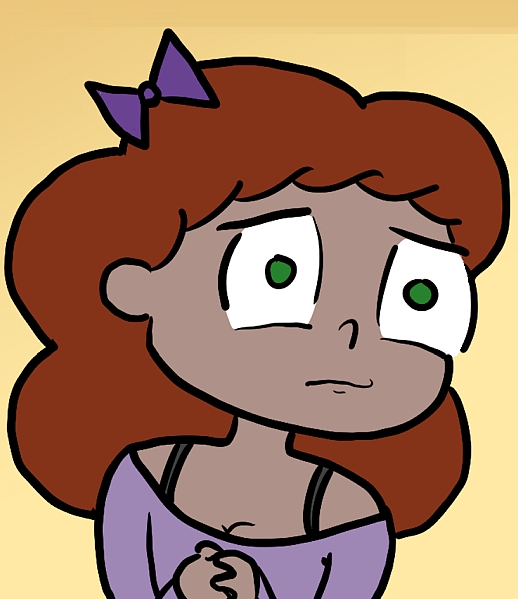- Welcome to Cook'd and Bomb'd.
-
 Childish pathetic stuff you...
by Blue Jam
Childish pathetic stuff you...
by Blue Jam
[Today at 06:04:18 PM] -
 Terry & June gets a trigger...
by madhair60
Terry & June gets a trigger...
by madhair60
[Today at 06:04:13 PM] -
 Doctor Who - Series 14, part...
by Alberon
Doctor Who - Series 14, part...
by Alberon
[Today at 06:02:05 PM] -
 The Captain Tom grift continues...
by DelurkedToHelp
The Captain Tom grift continues...
by DelurkedToHelp
[Today at 05:59:39 PM] -
 The Beatles are fucking good....
by Critcho
The Beatles are fucking good....
by Critcho
[Today at 05:58:51 PM] -
 Is this shit?
by Humper
Is this shit?
by Humper
[Today at 05:57:32 PM] -
 Expensive Houses That Would...
by Fambo Number Mive
Expensive Houses That Would...
by Fambo Number Mive
[Today at 05:56:42 PM] -
Who are you voting for in... by Mr_Simnock
[Today at 05:47:13 PM] -
I'm an artist therefore I... by Mr_Simnock
[Today at 05:45:36 PM] -
 Reasons why I want to obliterate...
by Kankurette
Reasons why I want to obliterate...
by Kankurette
[Today at 05:39:36 PM]
Members
 Total Members: 17,827
Total Members: 17,827 Latest: skinnylike
Latest: skinnylike
Stats
 Total Posts: 5,583,952
Total Posts: 5,583,952 Total Topics: 106,750
Total Topics: 106,750 Online Today: 1,129
Online Today: 1,129 Online Ever: 3,311
Online Ever: 3,311- (July 08, 2021, 03:14:41 AM)
Users Online
 Users: 122
Users: 122 Guests: 807
Guests: 807 Total: 929
Total: 929 Voltan (Man of Steel)
Voltan (Man of Steel) non capisco
non capisco Edgar Balloon III
Edgar Balloon III crankshaft
crankshaft Sad Ken
Sad Ken Eukrate
Eukrate Ruben Remus
Ruben Remus mrsleepy321
mrsleepy321 DelurkedToHelp
DelurkedToHelp Mr Farenheit
Mr Farenheit bigfatheart
bigfatheart Quote
Quote bambiraptor
bambiraptor jamiefairlie
jamiefairlie Two Headed Sex Beast
Two Headed Sex Beast ThaBiggPaybacc
ThaBiggPaybacc oggyraiding
oggyraiding Registering to lurk
Registering to lurk Theotherside
Theotherside Midas
Midas Mr Vegetables
Mr Vegetables Dr M1nx PhD
Dr M1nx PhD thr0b
thr0b Mobius
Mobius Jimmy the Harp
Jimmy the Harp StewartLeehaslethimselfgo
StewartLeehaslethimselfgo GMTV
GMTV daf
daf cromby
cromby Red Lantern
Red Lantern Poobum
Poobum Pixel Pusher
Pixel Pusher Catalogue Trousers
Catalogue Trousers Langdale
Langdale KaraokeDragon
KaraokeDragon Bellalunaesme2
Bellalunaesme2 bob bobsson
bob bobsson Alberon
Alberon Feralkid
Feralkid FredNurke
FredNurke Bobby Spatchcock
Bobby Spatchcock Critcho
Critcho Sparers
Sparers ZoyzaSorris
ZoyzaSorris Underturd
Underturd fucking ponderous
fucking ponderous Holy Dread
Holy Dread Emotional Support Peacock
Emotional Support Peacock Elderly Sumo Prophecy
Elderly Sumo Prophecy Ja'moke
Ja'moke This isnt witty sorry
This isnt witty sorry hcrumble
hcrumble paddi
paddi RHX
RHX chutnut
chutnut Dandy21
Dandy21 WeebleWobble
WeebleWobble Theoretical Dentist
Theoretical Dentist Uncle TechTip
Uncle TechTip Gob Shine Algorithm
Gob Shine Algorithm checkoutgirl
checkoutgirl Purple Toupee
Purple Toupee NattyDread 2
NattyDread 2 JaDanketies
JaDanketies benjitz
benjitz Incy Wincy Mincey
Incy Wincy Mincey sevendaughters
sevendaughters Cold Meat Platter
Cold Meat Platter JesusAndYourBush
JesusAndYourBush Heyimdavehowsitgoin
Heyimdavehowsitgoin Blumf
Blumf Steven88
Steven88 fink
fink Bleeding Kansas
Bleeding Kansas ishantbekeepingit
ishantbekeepingit Bunty Levert
Bunty Levert Magnum Valentino
Magnum Valentino Deanjam
Deanjam lankyguy95
lankyguy95 Luornu
Luornu Thursday
Thursday Kankurette
Kankurette C_Larence
C_Larence BritishHobo
BritishHobo RDRR
RDRR Egyptian Feast
Egyptian Feast gib
gib persephone
persephone BeardFaceMan
BeardFaceMan earl_sleek
earl_sleek twosclues
twoscluesDoes children's literature have any effect in the long run at all?
Started by Sin Agog, October 25, 2018, 02:33:48 PM
Previous topic - Next topic
User actions

